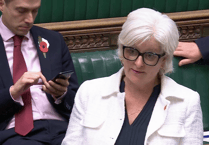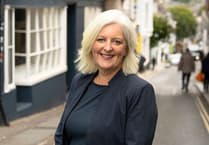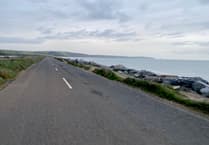by Steve Peacock
Totnes town councillors have agreed a zero council tax hike this year, while still throwing almost £80,000 at the town’s top seven good causes.
The council could have voted to slash the town’s share of the council tax bill by a whopping 22 per cent, or £28.30 a year, and still paid all its bills. Instead it decided to splash a £79,000 surplus on a range of community projects, including employing a new “clean-up” officer to rebuild the town skatepark.
The projects surfaced during the town’s first participatory budgeting exercise, whereby townspeople were asked how they would like to see their town council cash spent.
After months of consultation, the town council identified a top-seven project that both residents and non-residents who took part in a series of questionnaires felt were the most important. They are:
l Spending £16,000 on employing a town officer to co-ordinate cleanliness and improvements in the town.
l Spending £12,500 on employing a visitor information officer working six months of the year, from April to September, as a follow-on from the tourist information trial carried out last year at Totnes Guildhall.
l Spending £14,000 on improving the signage and upgrading street furniture, including community noticeboards, bins and an extra planting scheme around the town.
l Spending £3,000 on a pair of arts events in the town following on from the Christmas tree decorations workshop, which went ahead at Totnes Civic Hall in December.
l Spending £13,200 on improving the town’s Borough Park skatepark, which would go towards rebuilding and expanding the skatepark facilities.
l Spending £15,056 to enable the Caring Town Information Exchange, based in The Mansion, to continue its work helping townspeople to connect with services.
l Spending £6,110 on supporting the Totnes-based Citizens Advice charity.
Parish and town councillors such as those on Totnes Town Council have not been subject to the Government’s council tax cap, which for years has restricted both district and county councils from hiking their tax bills by more than five per cent.
In the past two years, Totnes Town Council has increased its share of the average council tax bills by more than 40 per cent and Totnes taxpayers currently pay the highest bills in the South Hams.
Average Totnes taxpayers currently shell out £125.98 a year to fund their town council, which is not far short of the £155 average bill that South Hams District Council charges.
The town council is planning to raise £377,570 for the coming financial year, which would cover its £169,000 wages bill alongside the £36,000 it plans to shell out on tourism; the £13,000 on Totnes Guildhall; the £24,000 on the civic hall; and the £31,650 on the town’s cemetery in Plymouth Road.
The town council is also raking in extra tax cash thanks to all the new homes that have been built around the town in the past year, which has meant more people paying tax into the town council’s coffers.
Even after all the bills have been paid, the town council has still been left with £79,000 to share out on the selected community projects.
If the councillors had decided not to spend the £79,000, they could have cut the average Totnes town council tax bill back to £97 a year, saving householders around £28.
As Totnes town clerk Catherine Marlton outlined the council’s budget options for the coming financial year, she stressed that all parish and town councils had been asked to act with “restraint” when it came to spending.
During the budget debate, Cllr Ben Piper stormed out of the meeting, claiming the council was allowing “the entire arts agenda that we’ve fought for for the past 12 months to fall by the wayside”, before declaring: “Quite frankly, I’ve had enough of this for now.”
Bemused town councillors pointed out that they were just about to agree an arts budget of more than £3,000 and there were other arts aspects of other budgets that were in the process of being agreed.
Totnes Mayor Rosie Adams said of Mr Piper’s unexpected departure: “That was totally unnecessary and totally wrong.”
l See more about council tax spending on page 9





Comments
This article has no comments yet. Be the first to leave a comment.